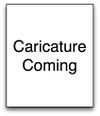Bob Liodice
| Country: | USA |
| Email: | bliodice[at]ana.net |
Robert "Bob" Liodice is the current President and CEO of the Association of National Advertisers, Inc., the first trade association established within the advertising industry dedicated in the advancement, promotion and protection of marketing and the consumers. Liodice joined ANA in 1995 as Senior Vice President, and for nine years supervised the association's member services. In 2002, Liodice was named Interim President and CEO of the association when John Sarsen retired. A few months after his appointment, ANA's Board of Directors officially confirmed his appointment.[1]
Career Background
Before joining ANA in 1995, Liodice served as Vice President of global marketing and sales of Groupo Televisa, a media entertainment conglomerate in Mexico and the largest mass media company in Latin America. Prior to that, he worked in the finance and management department of General Foods (now Kraft Foods) for fifteen years, and Marketing Manager of JELL-O and Bakers Brands.[2]
Organizational Affiliations
- The Advertising Council - Director
- Advertising Research Foundation - Director
- National Advertising Review Council - Director
- Partnership for a Drug-Free America - Director
- Advertising Educational Foundation - Director
- World Federation of Advertisers - Executive Committee Member
Association of National Advertisers (ANA)
ANA is the first association for the advertising industry which was originally established by 45 companies on June 24, 1910 in Detroit, Michigan. Its main objective is to protect and promote the interests advertisers and consumers. At present, the association has 400 member companies with 10,000 brands. ANA is actively involved in different issues affecting the advertising industry and provides insights, encourage collaboration and serves as advocate for its members. Recently, the association has been actively involved regarding ICANN's new gTLD expansion program particularly the Brand gTLD. As President and CEO of ANA, Liodice is leading the Association in voicing out the concerns of its members.[3] In November 2011, ANA created the Coalition for Responsible Domain Oversight (CRIDO), which serves as the association's primary group to lobby for the halt of the implementation of the new gTLD expansion program.[4]
Opposition on ICANN New gTLD Program
Liodice has strongly opposed the New gTLD Program since its approval by the ICANN Board in June 2011. On August 4, 2011, he sent a letter to Rod Beckstrom, ICANN President and CEO, stating that the implementation of the unlimited TLD is "economically unsupportable," might cause "irreparable harm and damage," with "no obvious benefits and no consensus support" from businesses, consumers, academics, researches and government agencies. He emphasized that the unlimited expansion of new TLDs may result in misappropriation of intellectual property, defensive registrations, domain navigation dilution, increased cybersquatting, reduced investment by intellectual property owners and losses from failed TLDs. He also alleged ICANN of violating its Memorandum of Agreement (MOU) with the U.S. Department of Commerce. Furthermore, he requested that ICANN consider the concerns of brand owners, such as those whom he represents, and stop the implementation of the program. He also expressed that ANA would be open for discussion to resolve the matter, but threatened that if ICANN ignored their position, the association would take all measures to stop the new gTLD program.[5][6] ICANN President Rod Beckstrom denied all the claims and accusations made by Liodice, describing his letter as "incorrect and problematic in several respects." Beckstrom's complete response is available here.
Liodice also published a series of video blogs on YouTube talking about ANA's opposition to the ICANN New gTLD Program.[7]
Education
- Bachelors Degree in Accounting & Management- New York University
- MBA in Finance- New York University

